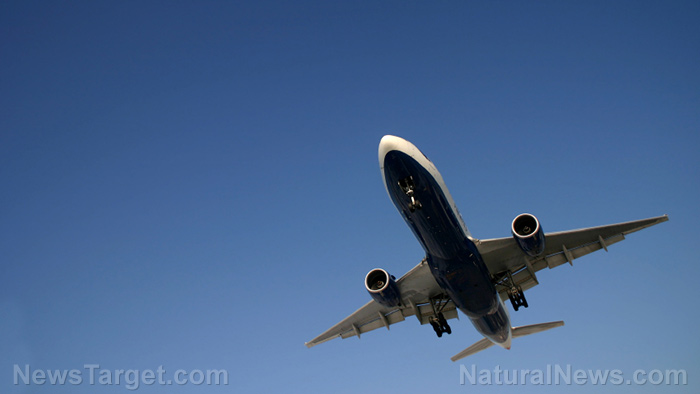
One of the affected industries is transportation and, in particular, air transport. One Finnish airline is preparing to implement a new policy: All passengers will be weighed prior to boarding flights so that they can more accurately gauge fuel use.
Officials with the airline, Finnair, told CNBC that it has already asked about 180 passengers to step on a scale before stepping onto flights out of Helsinki International Airport last week. In all, the airline needs to weigh about 2,000 passengers in order to get an accurate reading of passenger weights and their carry-on baggage.
The just-launched study will be continued into next year, officials said, because they allegedly want to see how overall flight weights differ from when passengers are carrying heavy winter coats versus when they are traveling lighter in weather that is warmer. Airline officials said they would protect passenger privacy and keep the data private.
CNBC reported further:
The aim of the weigh-ins, which might be more familiar to travelers who have flown on small planes, is to update nearly decade-old data on average passenger weights as it expands its route network and needs to accurately forecast payloads and how much fuel it requires.
“We have a strong safety culture at Finnair, and are also a very data-driven organization, so we want to ensure we have the best possible data in use in aircraft performance and loading calculations," Finnair officials said in a statement.
Officials noted that the airline is currently utilizing European Aviation Safety Agency information dating back to 2009. The information contains standard weights including carry-on luggage for male passengers at 88 kilograms (194 pounds), 70 kilograms (154 pounds) for female passengers, and 35 kilograms (77 pounds) for the average child.
“Now we feel it is time to update the data, as our traffic has developed and grown a lot," Finnair officials said. "We have a very international customer base, as many of our customers transfer with us between Europe and Asia, and then we have our domestic traffic as well.”
While Finnair officials likely would never admit it publicly, they have to be concerned with the “growing” population — that is, not its expanding passenger base but how much those passengers are expanding, thanks largely to poor diets.
According to the Centers for Disease Control and Prevention, more than one-third of U.S. adults (36.5 percent) are obese, but that figure is even higher among the traveling public — 40.2 percent among adults 40-59 years old. (Related: Obesity epidemic continues to ravage American youth: Nearly three-quarters aren’t eligible for military service.)
In Europe, rates are even higher: As of 2014, 51.6 percent of the European Union’s adult population (18 years and older) were considered obese.
The argument the airlines seem to be making is that heavier people cost more to fly, and it’s an argument that others have made as well. In fact, columnist Tony Webber, writing for The Sydney Morning Herald, argued that heavier passengers should have to pay more for their tickets.
“To cut to the chase: People who weigh more should pay more to fly on planes - in the same way that people who exceed their baggage allowance must fork out extra,” he wrote.
Why? “The fuel burnt by planes depends on many things but the most important is the weight of the aircraft,” he argued. “The more a plane weighs, the more fuel it must burn. If the passengers on the aircraft weigh more, the aircraft consumes more fuel and the airline’s costs go up.”
While it’s not clear that airlines are prepared to charge heavier customers more, it is clear that heavier passengers most definitely do affect flight costs (and therefore will affect the prices of tickets, meaning they’ll go up).
J. D. Heyes is editor-in-chief of The National Sentinel.
Sources include:
Please contact us for more information.























